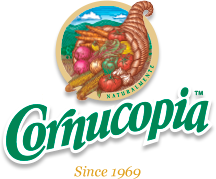Foods You Should Never Feed a Dog or Cat
No matter how powerful those puppy dog eyes may be, there are some foods you just can’t share with Fido.

Most pet owners are familiar with the more popular offenders, like chocolate or macadamia nuts. If you've never heard this important message before we will say it again: Don't Feed Chocolate To Your Pets!
But these aren't the only foods pet owners should avoid at all costs. As it stands there are dozens of human favorites that should never make their way into a pet’s food bowl. Here are ten of the most common human treats that should never be shared with your dog or cat (no matter how cute they may look or how much they may beg).
Alcohol
Though the thought of seeing your pet on the tipsy side maybe be funny, the reality is anything but. Be it a food containing alcohol or an alcoholic beverage, alcohol can cause decreased coordination, depression of the central nervous system, difficulty breathing, vomiting, tremors, diarrhea, coma, abnormal blog acidity, and – in large enough doses – can be fatal.

Avocados
Hey, more guacamole for us…
In all seriousness though, almost every part of this lunchtime staple – from the leaves to the seeds, and everything in between – contain Persin, a fungicidal toxin. While Persin is typically harmless for humans, it can have some nasty effects on dogs, cats, and other household pets including diarrhea and other digestion issues.
Coffee and other Caffeinated Foods
Like chocolate, caffeinated products often contain substances classified as methylxanthines. Though they’re generally harmless when eaten by humans, pets who ingest significant amounts of food containing methylxanthines can suffer from diarrhea and vomiting, excessive thirst and urination, panting, abnormal hearty rhythms, hyperactivity, tremors and seizures. In some cases, exposure may even be fatal.
Grapes & Raisins
Though grapes and raisins are on every “things your pet should not eat” list, they’re a bit different than all the other foods listed in that we’ve yet to discover what it is that makes grapes and raisins toxic to pets. What we do know is that they can cause kidney failure in dogs and other household pets. We also know that pets with existing medical conditions are more likely to experience a severe or more drastic reaction.

Milk
A nice saucer of milk is the perfect treat for any cat or kitten, right? Well…not exactly. Fact of the matter is, most household pets – cats included – don’t possess significant amounts of lactase. Lactase is the enzyme responsible for breaking down the lactose (a.k.a. natural sugar) in milk. Like their lactose-intolerant human counter parts, milk and milk-based products will often leave pets with an upset stomach or diarrhea.
Chives, Garlic, & Onions
While these veggies, along with many of the other herbs we commonly use for cooking, are great for bringing life and flavor to human food, they’re less than ideal for pet food. These veggies in particular are known to cause gastrointestinal issues and irritation. In certain cases they may even lead to red blood cell damage. While cats are more susceptible than dogs, both types of pets are prone to complications if large enough amounts of these root vegetables are consumed.
Raw Meat, Eggs or Bones
Yes. Our cats and dogs are the decedents of wolves, lions, and dozens of other wild cats and dogs that would’ve had no problem with a raw dinner. Thanks to thousands of years of domestication habits (along with some more recent changes to how we manufacture and process our livestock and poultry), raw meat, eggs, and bones aren’t necessarily the best option for your dog or cat. The presence of harmful bacteria (like Salmonella or E. Coli) and other enzymes that your pet’s digestive system just isn’t built to handle can lead to digestive troubles and other issues. We know raw diets are all the rage now, so if you are going to be feeding your pet raw meat and bones, be sure that they are extremely fresh, have been refridgerated and handled properly and are Grade A quality.

Salt
Too much salt can have some nasty effects on humans, which is why it should come as no surprise that dog and cats can suffer similar issues! Excessive thirst and urination, vomiting, diarrhea, tremors, depression, seizures and elevated body temperature are just some of the complications that can arise from too much salt.
Salt poisioning can be a seriously life threatening incident for dogs and cats. You pets can get high levels of salt from everyday items that you normally wouldn't think of - play dough, rock salt (de-icers), paint balls, sea water and of course common table salt.
Artificial Sweeteners - Xylitol & Aspartame
A common artificial sweetener, Xylitol can be found in a wide variety of products including candy, gum, toothpastes, and baked good. The most common Xylitol side effect in most household pets is the surge in insulin, which can ultimately lead to liver damage and failure. Another big artifical sweetener to avoid is Aspartame. This product comes in a large variety of people foods (and is just as unhealthy for us humans). While you're at it, don't feed your pets natural sugars either. Sweeteners are not a part of a Dog or Cat's native diet and should be avoided at all costs.
Yeast and Yeast Dough
If consumed by your pet, the uncooked yeast or yeast dough can continue to rise and release gas while inside your pet's their digestive tract. Not only can this be painful, but it in extreme cases it can also cause the intestines or stomach to rupture.



